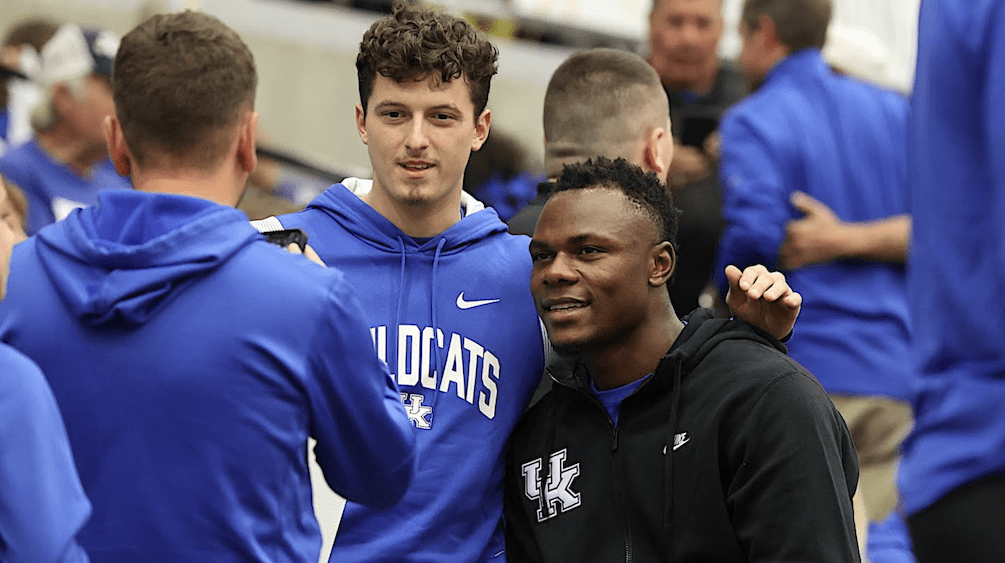
Oscar Tshiebwe signed autographs after UK's Blue-White Game but his knee problem likely will keep him out of UK's first two games. (Vicky Graff Photo)
At Kentucky’s Media Day, Oscar Tshiebwe said he had no doubts that he would be back for the season-opening game against Howard on Monday.
Now it doesn’t look that way which is only going to increase the speculation about why UK went from the end of last season until after October’s Pro Day to find out Tshiebwe had debris on his knee that needed to be fixed.
If that’s not enough, coach John Calipari said after Thursday’s exhibition rout of Kentucky State that he probably will not play against Duquesne on Nov. 11, either.
“I would be stunned if he played Monday,” said Calipari Thursday night. “I would be somewhat surprised if he played Friday.”
It does make sense to be extremely cautious with the 2021-22 unanimous national player of the year. Calipari knows Tshiebwe will want to play and said he’s not “normal” when it comes to pain but he probably would not play him Monday even if Tshiebwe wanted to.
“He needs a few more days. If he wants to play Friday, I’m gonna have to work him out myself and see, and if I did, he’d probably play 10 or 15 minutes just to get his legs under him,” Calipari said.
Point guard Sahvir Wheeler injured his knee in the Sunday night exhibition win over Missouri Western and did not play Thursday. Remember he missed games late last season with various injuries.
Maybe that’s why Calipari was not anxious to say when he thought Wheeler would be back.
“Sahvir, I don’t know. He was there. He was walking around, but you can’t just say, ‘Well I’ll play Monday,’” Calipari said. “You gotta practice to make sure you can do this.”


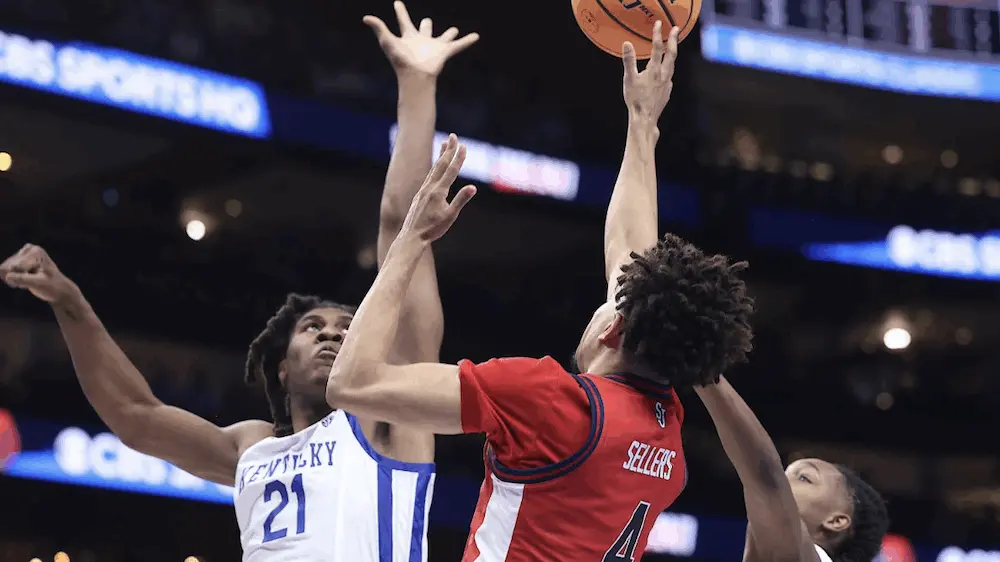
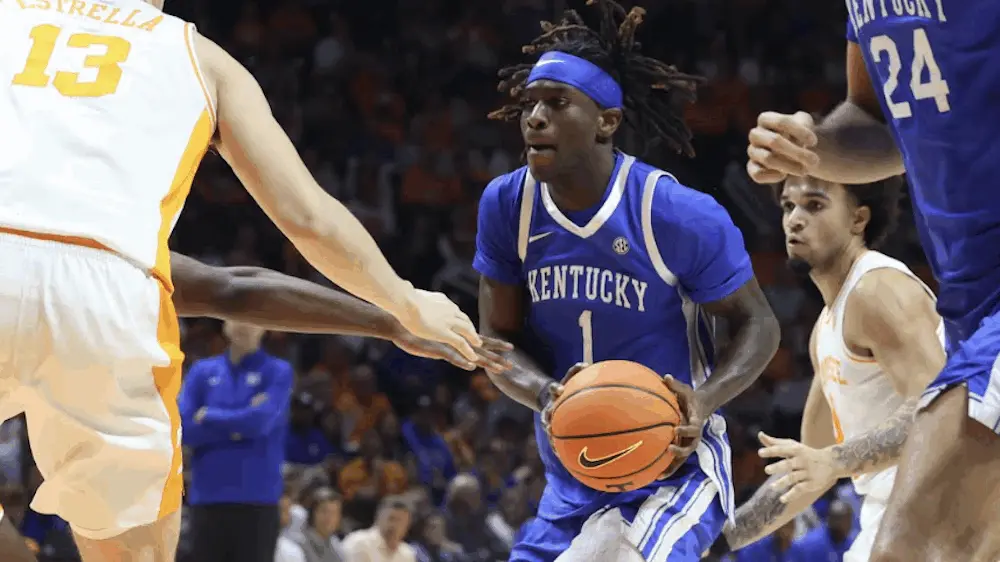
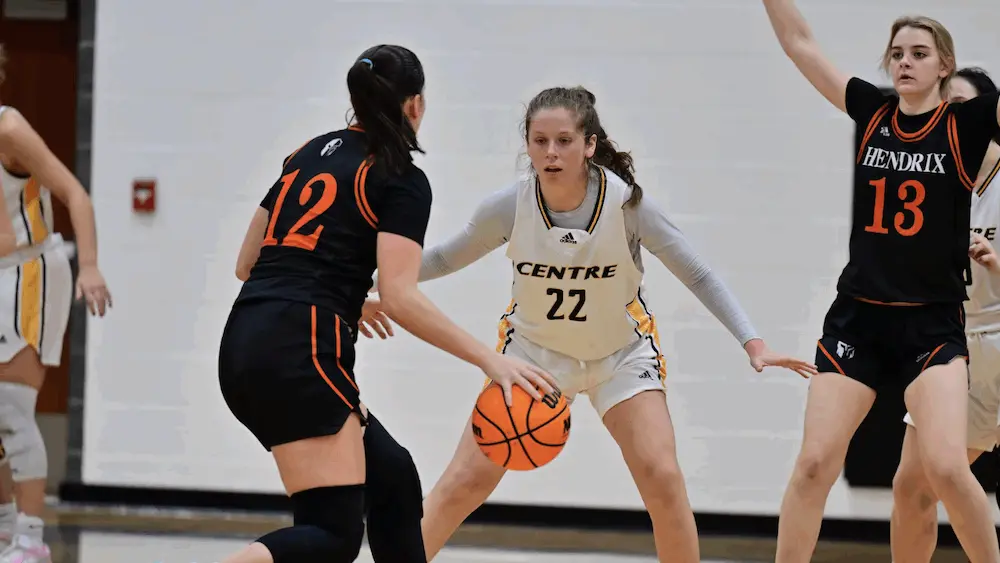
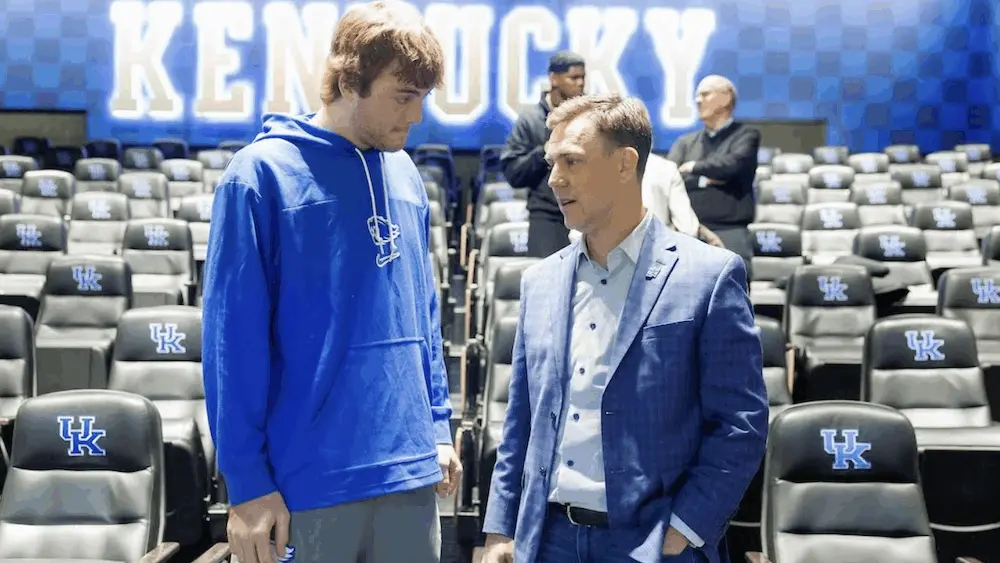

One Response
Maybe one day someone will ask Calipari when they first knew about debris in Oscar’s knee, and why this "minor surgery" was not performed during the off-season when it would not impact his availability for the season.
If they did not know about this much earlier, they should have known. The best program in the world, with access to the best medical minds and medical facilities that money can buy, would know these things about their players, any of the players, much less the returning player of the year.
Exactly what was this "minor surgical procedure"? Perhaps members of the UK sports press corps have asked these types of questions but decided to not report to the public. However, the historical absence of journalistic curiosity surrounding the UK basketball program has been remarkable.
I did a little research about the removal of debris within a knee, and this is what I learned in about 20 minutes. The most common surgical procedure is called arthroscopic debridement.
What is arthroscopic debridement?
Arthroscopic debridement is a minimally invasive orthopedic surgery that removes damaged cartilage or bone. Also called scoping or arthroscopic surgery, it involves a joint lavage or washout to remove debris around the joint. Any remaining loose fragments are surgically removed.
Researchers Question Effectiveness of Arthroscopic Debridement
Some thought arthroscopic debridement worked by flushing fluid through the joint during the procedure to rid the knee of debris and possibly inflammatory enzymes. Others believed the improvement was due to the removal of flaps of cartilage, torn meniscal fragments, synovial tissue, and loose debris. But it really wasn’t clear what was happening.
The study results that were published in 2002 surprised many, not the least of whom were patients who swore arthroscopic debridement helped them. Researchers had started to suspect that arthroscopic debridement was no more effective than placebo because they lacked any sound explanation for how or why it worked.
In the study, 180 patients with osteoarthritis of the knee were randomly assigned to receive arthroscopic debridement, arthroscopic lavage, or placebo surgery. At no point during the study did patients in the groups receiving arthroscopic debridement or lavage report less pain or improved joint function compared to the placebo group.
The results of the study had a huge impact and there was confusion over who should be having the surgery.3 Had patients and insurance companies been paying out big bucks for a procedure that had no more effect than placebo?
The American Academy of Orthopaedic Surgeons (AAOS) incorporated the conclusions into their treatment recommendations for knee osteoarthritis. The AAOS states that it cannot recommend arthroscopic debridement and/or lavage to treat osteoarthritis. This recommendation is based primarily on the above-mentioned 2002 study, along with two other similar studies conducted later. However, the recommendation doesn’t apply to people with a primary diagnosis of a meniscal tear, loose body, or other derangements in the knee along with osteoarthritis.5
The numbers in the quoted text are footnotes with links to other references supporting these points. These reports say consistently the procedure may not even be effective is alarming. No more effective than a placebo (fake surgery), and yet, it was a rush to get it done on Oscar shortly before this season is set to begin.
Everyone here understands that I don’t trust Calipari. Pardon my cynicism, but I believe his track record not merit trust from members of the BBN, and I am disappointed that the press is so seemingly content to accept whatever he says without inquiring.
Comments are closed.